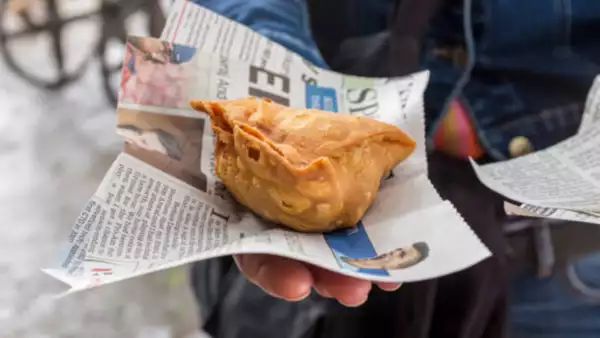In a recent advisory, the Food Safety and Standards Authority of India (FSSAI) has expressed concerns about the potential dangers of consuming food wrapped in newspaper. This practice, although common in various street food outlets and households due to its convenience and cost-effectiveness, may pose significant health risks.
The Hidden Dangers of Newspaper Ink
The primary concern surrounding this practice is the ink used in newspapers. Newspaper ink often contains several chemicals that are not intended for consumption. When food is wrapped in newspaper, these chemicals can migrate from the newspaper to the food, especially if the food is greasy or wet.
Among the common compounds in newspaper inks are phthalates, which have been linked to various health problems when ingested. They can act as endocrine disruptors, affecting hormonal balance in the human body. In addition to phthalates, inks can contain other harmful compounds, such as heavy metals like lead and cadmium. Prolonged exposure or ingestion of these compounds can lead to health issues like kidney problems, hormonal imbalances, and other ailments.
The Cultural Shift
Despite the historical and cultural significance of using newspaper as a food wrapper in various parts of the country, it is crucial for consumers to be aware of these health risks. The convenience of using newspapers should not overshadow the potential dangers they pose.
Many street vendors, unaware of the associated risks, continue to use newspapers because of their easy availability and low cost. To make a positive change, it’s essential to spread awareness not only among consumers but also among food vendors about safer and more hygienic alternatives to newspapers.
Safer Alternatives
Fortunately, there are several alternatives available. Biodegradable wraps, food-grade papers, and reusable containers can be a much safer choice for wrapping and storing food. Vendors and consumers alike should be encouraged to switch to these safer alternatives for the sake of public health.
The FSSAI’s warning serves as a crucial reminder to prioritize health and safety over convenience. While traditions and practices are deeply rooted in our culture, it is essential to evolve and adapt when these practices pose significant health risks. Switching to safer alternatives and being aware of the dangers of non-food grade materials are simple steps that can lead to a healthier society.
